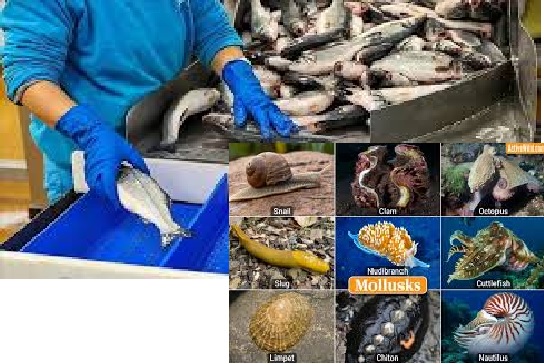
Chapter 3 Fish and crustaceans, mollusks and other aquatic invertebrates Export import Worldwide Foreign Trade Laws, Licensing, Customs Clearance, International Logistics, and Exim Documentation
Export-import of fish and seafood is a critical sector of the global trade industry. The demand for seafood is on the rise due to the increasing awareness of its health benefits and the growth of the global population. This article will discuss the worldwide trade laws, licensing, customs clearance, international logistics, and Exim documentation associated with the export-import of fish and seafood.
Export-Import Trade Laws
The export-import trade laws for fish and seafood vary from country to country. For instance, in the United States, the Food and Drug Administration (FDA) regulates seafood importers to ensure that the imported seafood is safe for human consumption. Similarly, in the European Union (EU), the European Commission is responsible for regulating the import of fish and seafood.
In addition, the World Trade Organization (WTO) has established rules and regulations for international trade, which include guidelines for the import-export of fish and seafood. WTO member countries are required to follow these rules and regulations to ensure that their exports and imports comply with international standards.
Licensing Requirements
Export-import of fish and seafood requires several licenses and permits to comply with local and international regulations. For instance, in the US, seafood importers must have an FDA registration number, which is required to clear customs. Similarly, the EU requires a catch certificate for all fish and seafood imports to ensure that the fish was caught legally and sustainably.
In addition to these licenses and permits, fish and seafood importers must also comply with local regulations related to health, safety, and environmental standards. Failure to comply with these regulations can result in fines, penalties, and even the seizure of imported goods.
Customs Clearance
Customs clearance is a crucial part of the export-import process. Importers must provide all the required documentation, including licenses, permits, and certificates, to customs officials to clear their goods for entry into the country. Customs officials may also conduct inspections to ensure that the imported goods comply with local and international regulations.
It’s important to note that customs clearance procedures vary from country to country. Importers must be aware of the specific requirements and procedures for customs clearance in each country to avoid any delays or complications in the import process.
International Logistics
International logistics is another critical aspect of the export-import process for fish and seafood. Importers must ensure that the goods are transported safely and efficiently from the exporting country to the importing country. This involves selecting the appropriate transportation mode, such as air, sea, or land, and arranging for the necessary shipping and handling services.
In addition, importers must comply with regulations related to the transportation of fish and seafood, such as temperature and humidity requirements, to ensure that the goods arrive in good condition. Failure to comply with these regulations can result in spoilage or damage to the goods, which can lead to financial losses for the importer.
Exim documentation is an essential part of the export-import process for fish and seafood. It includes all the necessary paperwork, such as invoices, bills of lading, and packing lists, required for the export-import transaction. This documentation is necessary to comply with local and international regulations and to ensure smooth customs clearance and transportation of the goods.
In addition to these documents, importers must also comply with documentation related to health, safety, and environmental regulations. This documentation includes health certificates, product testing reports, and environmental impact assessments, among others.
Conclusion
The export-import of fish and seafood is a critical sector of the global trade industry. Importers must comply with local and international regulations related to trade laws.
